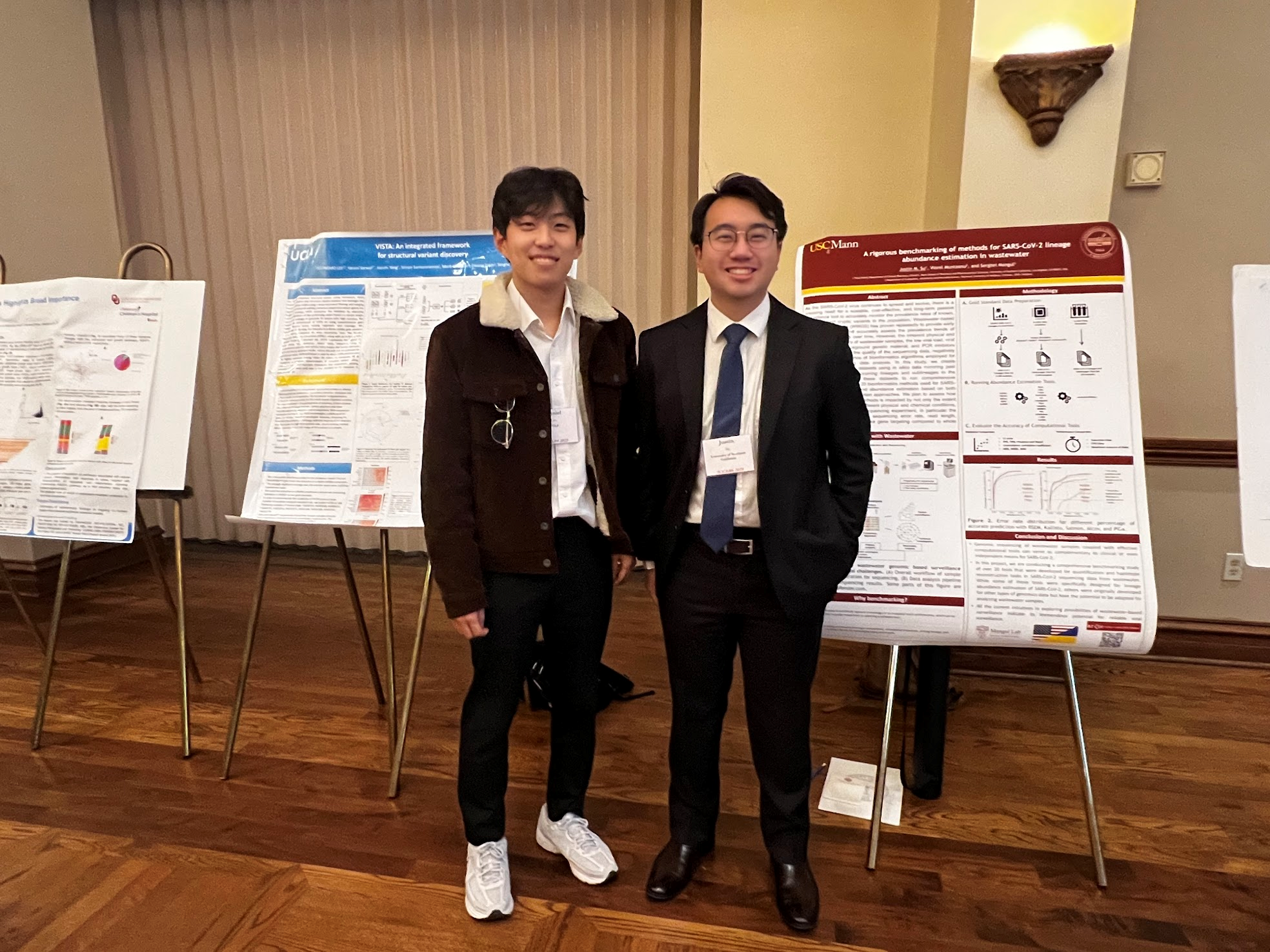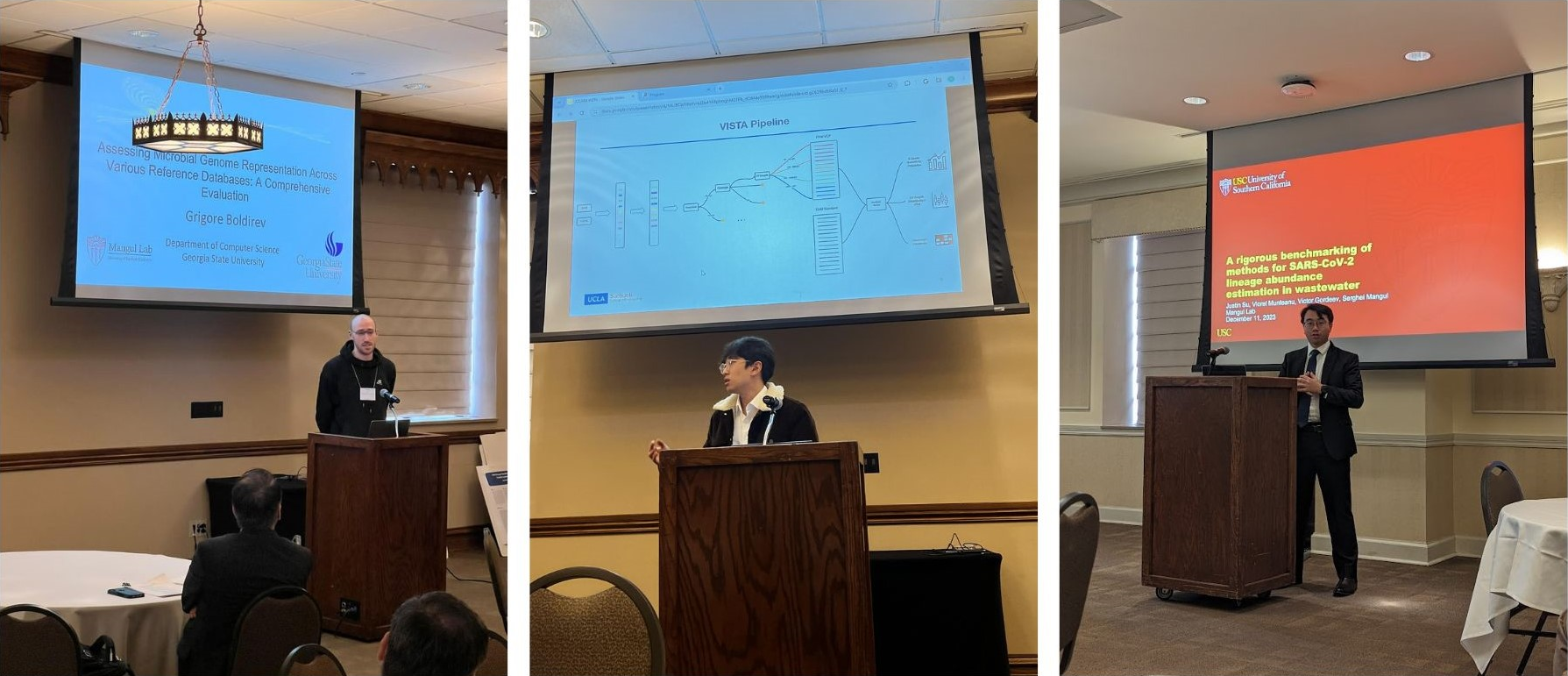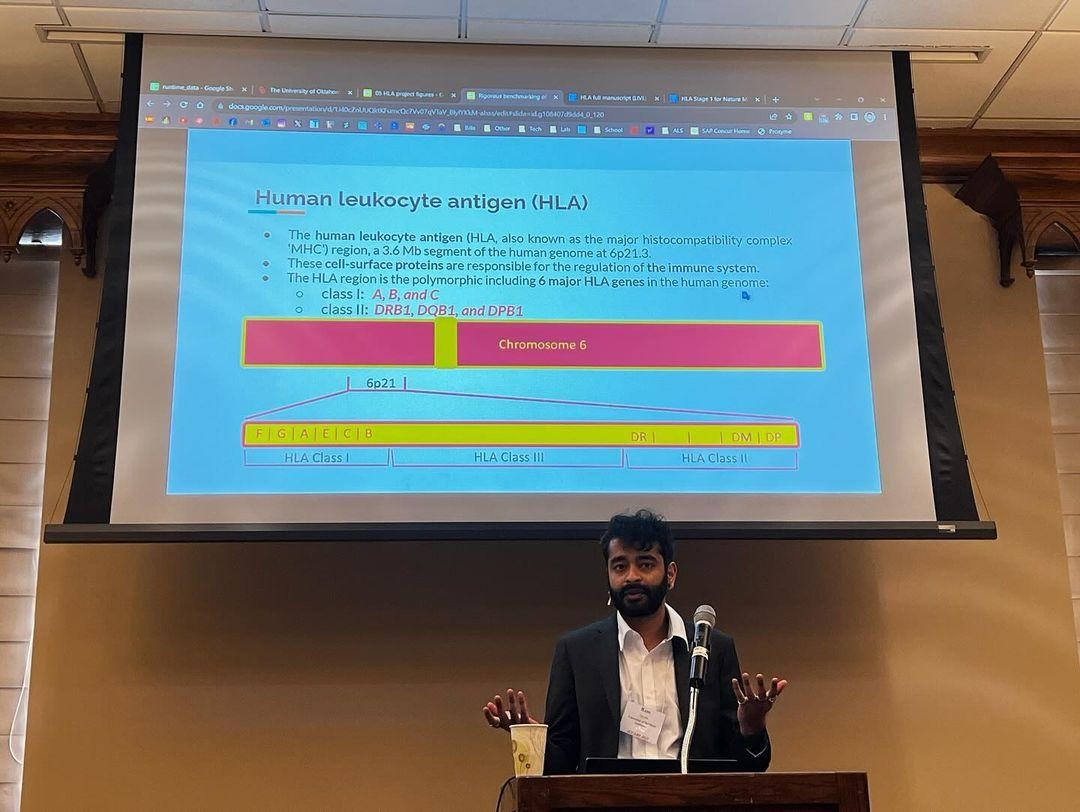The Mangul lab presented five talks at the ICCABS 2023 conference
Seungmo Lee December 14, 2023
The Mangul lab presented five talks at the ICCABS 2023 conference
Ram Ayyala, Grigore Boldirev, Seungmo Lee, and Justin Su participated in the 12th International Conference on Computational Advances in Bio and Medical Sciences (ICCABS) which was held at the University of Oklahoma from December 11-13, 2023.
ICCABS stands at the forefront of integrating computational methods with biological research, aiming to bring together leading academic and industry researchers to discuss the latest advances. The conference is structured over three days, consisting of keynote talks, workshop talks, poster presentations, and cool networking opportunities! The first day focused on biomedical research (Immunotherapy and Cancer Research, Epidemiology), the second day focused on sequence analysis and machine learning models in bio and medical sciences, and the last day focused on genomics and neuroscience.
Some of the interesting talks included “On Multi-Phase Metagenomics Reads Binning” by Cinzia Pizzi and “Early detection of emerging viral variants with altered phenotypes using viral epistatic networks” by Pavel Skums, which inspired me to consider new directions of methodologies for my work and take different approaches in metagenomics field.
Seungmo presented his paper on “VISTA: An Integrated Framework for Structural Variant Discovery” in CANGS and won 2nd place in the Best Poster Award in poster presentation. Justin gave a talk on his ongoing project “A rigorous benchmarking of methods for SARS-CoV-2 lineage abundance estimation in wastewater,” and won 3rd place for the Best Poster Award. For the first time, Grigore gave a talk at a conference presenting his project “Assessing microbial genome representation across various reference databases: A comprehensive evaluation”. Ram presented his ongoing project “Rigorous Benchmarking of HLA Callers for RNA sequencing data”. Professor Serghei Mangul gave a talk at the ASI Workshop on “Adaptive receptor repertoire profiling methods for RNA sequencing.”



The second day wrapped up with a banquet, providing an extensive opportunity for informal interaction with faculties and fellow students from across the country.
Additionally, we are thankful to NSF for providing the Student Travel Fellowship allowing Mangul Lab to attend the conference.
We highly recommend ICCABS and immerse yourself in the world of computational biology.